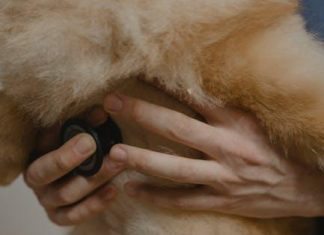Welcoming a new puppy into your home is an exciting and joyful experience, but it also comes with a host of responsibilities, not the least of which is ensuring your furry friend receives the right nutrition. Proper feeding during the early stages of your puppy’s life is crucial for their growth, health, and overall well-being. In this guide, we’ll explore the essentials of puppy feeding, helping you navigate the myriad of choices to ensure your pup gets a balanced diet. With warmth and care, we’ll walk you through everything from selecting the right food to understanding portion sizes and feeding schedules. Let’s embark on this nurturing journey together, setting the foundation for a happy, healthy life for your new companion.
Choosing the Right Puppy Food for Optimal Growth
Finding the perfect puppy food can feel like a daunting task, but with the right guidance, it becomes an opportunity to nurture your little companion’s health. When selecting food, prioritize a balanced diet that includes essential nutrients such as protein, fats, carbohydrates, vitamins, and minerals. Proteins are vital for muscle development, while healthy fats provide energy and support brain development. Carbohydrates offer a steady source of energy, and vitamins and minerals ensure overall well-being and immune health.
- Look for High-Quality Ingredients: Choose foods with real meat, such as chicken or lamb, as the first ingredient. Avoid by-products and artificial additives.
- Consider Breed-Specific Needs: Some breeds may have specific dietary requirements, so consult your vet for tailored advice.
- Check for AAFCO Approval: Ensure the food meets the standards set by the Association of American Feed Control Officials for complete and balanced nutrition.
Remember, every puppy is unique, and their dietary needs may vary. Regular check-ins with your veterinarian can help adjust their diet to support their growth phases optimally.
Understanding Nutritional Needs for Different Breeds and Sizes
When it comes to feeding your puppy, it’s crucial to recognize that not all puppies are created equal. Different breeds and sizes have varying nutritional needs that can significantly impact their growth and development. Larger breeds, such as Great Danes or Saint Bernards, require a diet rich in calcium and phosphorus to support their rapidly growing bones, while smaller breeds like Chihuahuas or Pomeranians benefit from energy-dense foods that cater to their higher metabolism.
- Small Breeds: Opt for foods that are high in calories and nutrients but low in volume. These pups have smaller stomachs and need more frequent feeding.
- Medium Breeds: A balanced diet with a mix of proteins, fats, and carbohydrates will support their steady growth rate.
- Large Breeds: Focus on controlled portions with adequate calcium and phosphorus to prevent bone disorders.
Remember, the key to nurturing a healthy puppy is tailoring their diet to their unique needs. Consult your veterinarian to ensure you’re meeting the specific dietary requirements for your puppy’s breed and size, setting them on the path to a healthy, happy life.

Creating a Consistent Feeding Schedule for Your Puppy
Establishing a regular feeding routine is crucial for your puppy’s health and development. Puppies thrive on consistency, so it’s important to feed them at the same times each day. This not only helps with digestion but also makes house training easier. Here are some tips to create an effective feeding schedule:
- Frequency: Young puppies need to eat more frequently. Aim for three to four meals a day until they are about six months old, then gradually transition to two meals a day.
- Portion Control: Use the feeding guidelines on your puppy’s food package as a starting point, adjusting based on your puppy’s growth and activity level. Consult your veterinarian for personalized advice.
- Consistency: Feed your puppy at the same times each day to create a routine they can depend on.
- Environment: Choose a quiet, comfortable spot for feeding to help your puppy feel safe and focused during meals.
By following these steps, you can help ensure your puppy receives balanced nutrition and develops healthy eating habits. Remember, a well-fed puppy is a happy puppy!

Monitoring Your Puppys Health and Adjusting Diet Accordingly
Keeping a close eye on your puppy’s health is crucial in ensuring they receive the right nutrition. Regular vet check-ups are essential, but you can also monitor your puppy at home by observing their energy levels, coat condition, and weight. Energy levels should be consistent, with puppies showing a lively and playful demeanor. A shiny coat often indicates good health, while dull or flaky fur might suggest nutritional deficiencies. Maintaining a healthy weight is also vital; puppies should have a visible waist and you should be able to feel their ribs without pressing too hard.
If you notice any changes, it may be time to adjust their diet. Consider the following steps to ensure your puppy’s diet is on track:
- Consult with a vet: Before making any changes, it’s always a good idea to seek professional advice.
- Evaluate portion sizes: Puppies need more calories than adult dogs, but overfeeding can lead to obesity.
- Check ingredient quality: Opt for high-quality puppy food with real meat as the first ingredient.
- Introduce variety: A mix of wet and dry food can provide a balanced diet and keep your puppy interested.
- Monitor for allergies: Be aware of any signs of food allergies, such as itching or digestive issues, and adjust accordingly.
By staying attentive and making informed adjustments, you can help ensure your puppy grows up healthy and happy.
Future Outlook
ensuring your puppy receives balanced nutrition is a vital step in fostering their growth and overall well-being. By understanding the fundamentals of puppy feeding, from selecting high-quality food to establishing a consistent feeding schedule, you’re setting the foundation for a healthy and happy life for your furry friend. Remember to monitor their development, adjust their diet as needed, and consult with your veterinarian to address any specific concerns. With your attentive care and love, your puppy will thrive, bringing joy and companionship to your home for years to come. Thank you for joining us on this journey to nurture your new family member.
















